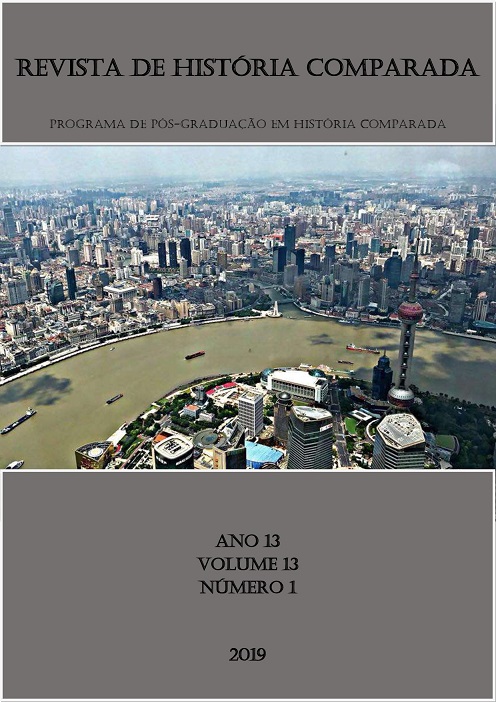THE GREAT DIVERGENCE IN THE ANTHROPOCENE
Résumé
The purpose of this paper is to make explicit and explore in detail some of the implicit assumptions that informed my book, Why Europe Grew Rich and Asia Did Not: Global Economic Divergence, 1600-1850. While the theoretical and methodological perspectives that inform the work are laid out in the introduction and conclusion of the book, why these frameworks were chosen is not elaborated upon. The emergence and impact of the Anthropocene, the new epoch which our planet has entered, are essential to the arguments of the book and in my opinion worth elucidation. The Anthropocene is a scientific category. The concept emerged from within the community of Earth System scholars and refers to a new epoch that followed the Holocene and in which “humans constitute the dominant driver of change to the Earth System.” The power of humanity to transform our planet demands a rethinking of historical practices and priorities. By making explicit the implicit assumptions of my work this paper represents a contribution to that rethinking.Téléchargements
Références
CARR, Edward. What is History? New York: [s. n.], 1961.
CHAKRABARTY, Dipesh. The Climate of History: Four Theses. Critical Inquiry, v. 35, n. 2, p. 197-222, 2009.
DE VRIES, Jan. Review of Why Europe Grew Rich and Asia Did Not. American Historical Review, v. 117 , n. 5, p. 1532-4, 2012.
HOBSBAWM, Eric. Interesting Times: A Twentieth-Century Life. New York: Pantheon, 2003.
JONSSON, Fredrik A. The Industrial Revolution in the Anthropocene. Journal of Modern History, v. 84, p. 679-96, 2012.
MEADOWS, Donella; RANDERS, Jorgen; MEADOWS, Dennis. Limits to Growth: The 30-Year Update. White River Junction: [s. n.], 2004.
MINK, Louis O. Historical Understanding. Ithaca: NCROL, 1987.
PARTHASARATHI, Prasannan. Why Europe Grew Rich and Asia Did Not: Global Economic Divergence, 1600-1850. Cambridge: Cambridge University, 2011.
PARTHASARATHI, Prasannan; POMERANZ, Kenneth. The Great Divergence Debate. In: ROY, Tirthankar Roy; RIELLO, Giorgio (Eds.). Global Economic History. London: Bloomsbury Academic, 2019. p. 19-37.
ROBERTS, Neil. The Holocene: An Environmental History. 2nd edn. Oxford: Blackwell, 1998.
ROCKSTROM, Johan et al. Planetary Boundaries: Exploring the Safe Operating Space for Humanity. Ecology and Society, v. 14, n. 2, p. 32, 2009. Disponível em: https://www.ecologyandsociety.org/vol14/iss2/art32/, Acesso 21 jun 2019.
STEFFEN, Will; CRUTZEN, Paul; MCNEILL, John. The Anthropocene: Are Humans Now Overwhelming the Forces of Nature. Ambio, v. 36, n. 8, p. 614-21, 2007.
STIGLITZ, Joseph. The Contributions of the Economics of Information to Twentieth Century Economics. Quarterly Journal of Economics, v. 115, n. 4, p. 1441-1478, 2000.
THOMAS, Julia. Why the “Anthropocene” Is Not “Climate Change” and Why It Matters. AsiaGlobal Online. Disponível em: <https://www.asiaglobalonline.hku.hk/anthropocene-climate-change/>. Acesso 21 jun 2019.
THOMAS, Julia; WILLIAMS, Mark; ZALASIEWICZ, Jan. The Anthropocene: A Multidisciplinary Approach. [s. l.]: Polity Press, forthcoming 2020.
WACKERNAGEL, Mathis et al. Tracking the Ecological Overshoot of the Human Economy. Proceedings of the National Academy of Sciences, v. 99, p. 9266-71, 2002.
Téléchargements
Publié-e
Numéro
Rubrique
Licence
Proposta de Política para Periódicos de Acesso Livre
Autores que publicam nesta revista concordam com os seguintes termos:- Autores mantém os direitos autorais e concedem à revista o direito de primeira publicação, com o trabalho simultaneamente licenciado sob a Licença Creative Commons Attribution que permite o compartilhamento do trabalho com reconhecimento da autoria e publicação inicial nesta revista.
- Autores têm autorização para assumir contratos adicionais separadamente, para distribuição não-exclusiva da versão do trabalho publicada nesta revista (ex.: publicar em repositório institucional ou como capítulo de livro), com reconhecimento de autoria e publicação inicial nesta revista.
- Autores têm permissão e são estimulados a publicar e distribuir seu trabalho online (ex.: em repositórios institucionais ou na sua página pessoal) a qualquer ponto antes ou durante o processo editorial, já que isso pode gerar alterações produtivas, bem como aumentar o impacto e a citação do trabalho publicado (Veja O Efeito do Acesso Livre).


